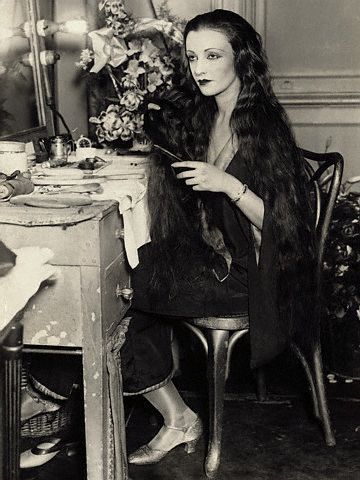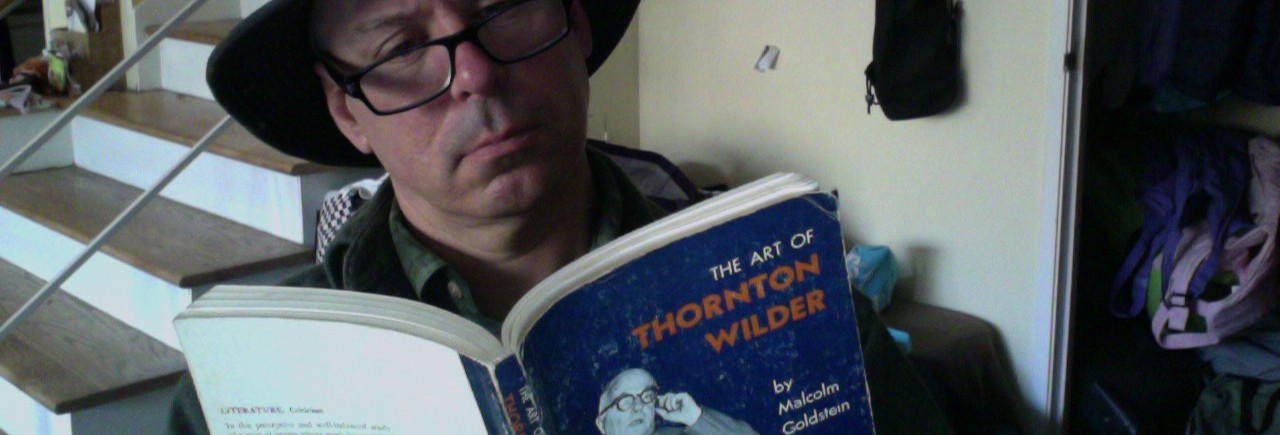
Unexpectedly, two theater celebrities from very recent centuries pop up amid the mummies and hieroglyphics on view in the darkly lit Echoes of Egypt exhibition at Yale’s Peabody Museum.
There’s a photo of Natacha Rambova in a back room of the exhibit. She was a famous ballerina, the wife of Rudolf Valentino, and the writer/ designer of Alla Nazimova and Charles Bryant’s legendary 1923 silent film version of Oscar Wilde’s Salome. Rambova was also a Connecticut resident (though she was born in Utah, died in California, and acted European) and a scholar who contributed to several books on Egyptian monuments and iconography. The star’s interest in Egyptian culture was partly spiritual and aesthetic, but she was also a serious scholar and collector. The Rambova archives, over 10,000 items all told, are at Yale University. A couple of artifacts from her Egyptian collection–a bull-head amulet and “a rendering of a painted relief from the tomb of Rameses VI” hang on the wall of the Peabody’s Echoes of Egypt exhibition near her photo.
Also represented in the exhibit is Bridgeport impresario and politician P. T. Barnum. Some mummified remains on display, and the casket they came in, were acquired by Barnum for his museum of curiosities. The mummy’s name was Pa-ib, and were on display for decades at the Barnum museum in Bridgeport, until that building was shuttered due to storm damage. At the Peabody, the mummy is presented as part of an elaborate life- sized diorama, in which Victorian gentlemen in top hats stand around the body, studying it. I think P. T. Barnum would appreciate the theatricality that is afforded this one section of such a varied exhibit.
(The entranceway of the Echoes of Egypt show, by the way, is in the style of the arched entrance to the Grove Street cemetery just a few blocks from the Peabody. The replica includes the hallowed, much-mocked motto on the arch: “The dead shall be raised.” The perennial punchline, which dates back as long as the arch has existed: “They will, if Yale needs the land.”)
